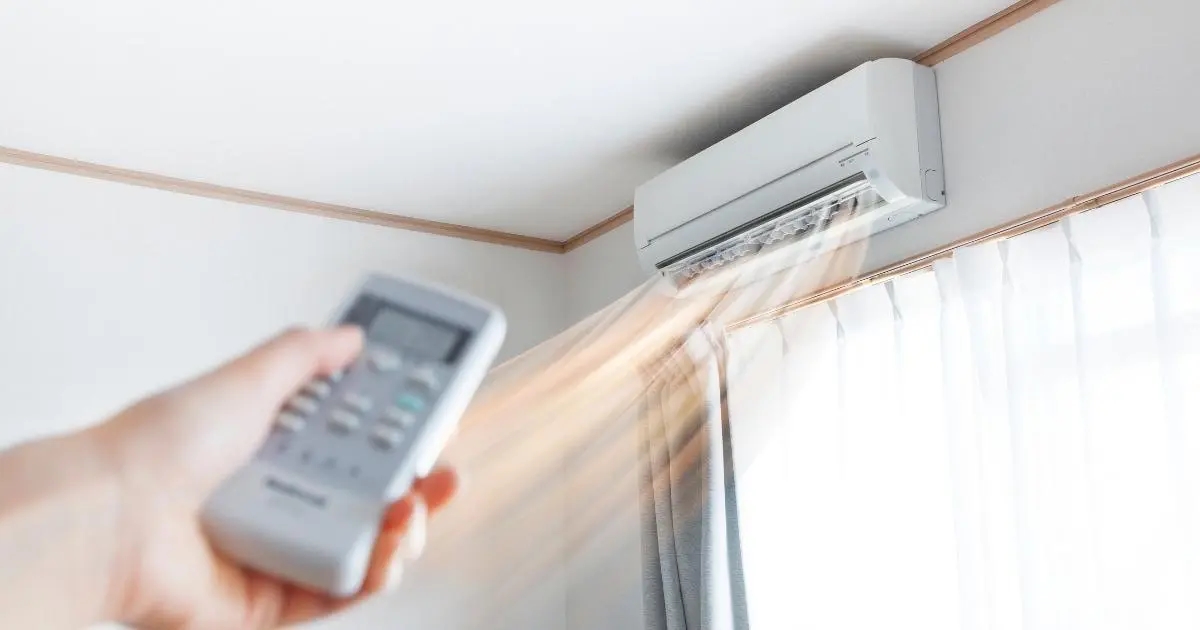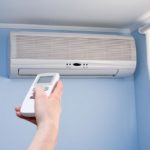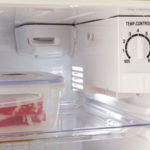Air conditioning is a type of device that has become popular and familiar to everyone, even present in most households. However, how to use air conditioning correctly, saving electricity while still ensuring the health of family members, is always a question that many people are concerned about. The question of what temperature to set the air conditioning is one of them.
To answer this question, first of all, people need to know that depending on the temperature inside the room compared to the ambient temperature, we have different answers to the above questions. However, generally, the air conditioner will cool most effectively when the condenser temperature is below 48°C and the room temperature is above 19°C.

(Illustrative image)
According to experts, to save electricity when using air conditioning, you should set the air conditioning temperature at a difference of 6 to 10°C compared to the outside temperature.
So that means when the outside temperature is at 40°C, setting the air conditioning at 30°C will help save electricity while still keeping it cool enough. Meanwhile, if you set the temperature below 25°C, the unit will have to operate at full capacity and definitely consume a large amount of electricity.
However, if the temperature outside the room is only about 30 – 35 degrees, you should set the air conditioning temperature to about 26 – 28 degrees to save electricity. If the air conditioner is set at 30 degrees, the air conditioner condenser will constantly turn on and off. Each time the condenser starts, it will consume a considerable amount of energy.
Setting the air conditioner at a low temperature below 16 degrees Celsius will make it run continuously at maximum capacity to bring the room to the desired temperature. If this is done continuously over a long period of time, it can increase monthly electricity consumption by 3 to 4 times compared to setting the temperature at the usual level of 25 – 27 degrees Celsius.
At the same time, according to US energy experts, the ideal temperature for using air conditioning is in the range of 24 – 27 degrees Celsius. But this is the temperature that should be used for daytime, while at night, it should be at 28 degrees Celsius. The reason is as follows:
At night, the average temperature tends to drop, and the body does not need to move as much as during the day. Therefore, the body will not sweat much, so if you set the temperature at the same level as during the day, you will be more likely to catch a cold. It also makes you more prone to muscle cramps while sleeping.
In the evening before going to bed, adjusting the temperature to 28 degrees Celsius also helps save energy up to 10% of the electricity bill.
|
Vietnam Electricity Group (EVN) recommends that households using electricity for living should not set the air conditioning temperature below 26 degrees Celsius to save electricity. This information is stated in a document sent by EVN to provinces and cities regarding promoting electricity saving in the 2023 dry season. In a notice about the operation situation on May 15, EVN also said “we look forward to receiving the sharing and coordination of the people and customers” in using electricity economically, especially during peak hours in the afternoon from 11:30 am to 2:30 pm and in the evening from 8 pm to 10 pm. |
According to Phunuvietnam.vn
DIY Nutritious Cereal Flour and Its Benefits
Changing your diet for the better has never been easier – Ði?n Máy XANH has all the info you need on the highly nutritious cereal flour. In this article, we will look at the nutritional advantages it holds, how to cook with five kinds of beans, and how to get the most out of this incredible food for your wellbeing. Don’t miss out on these amazing health tips!






































